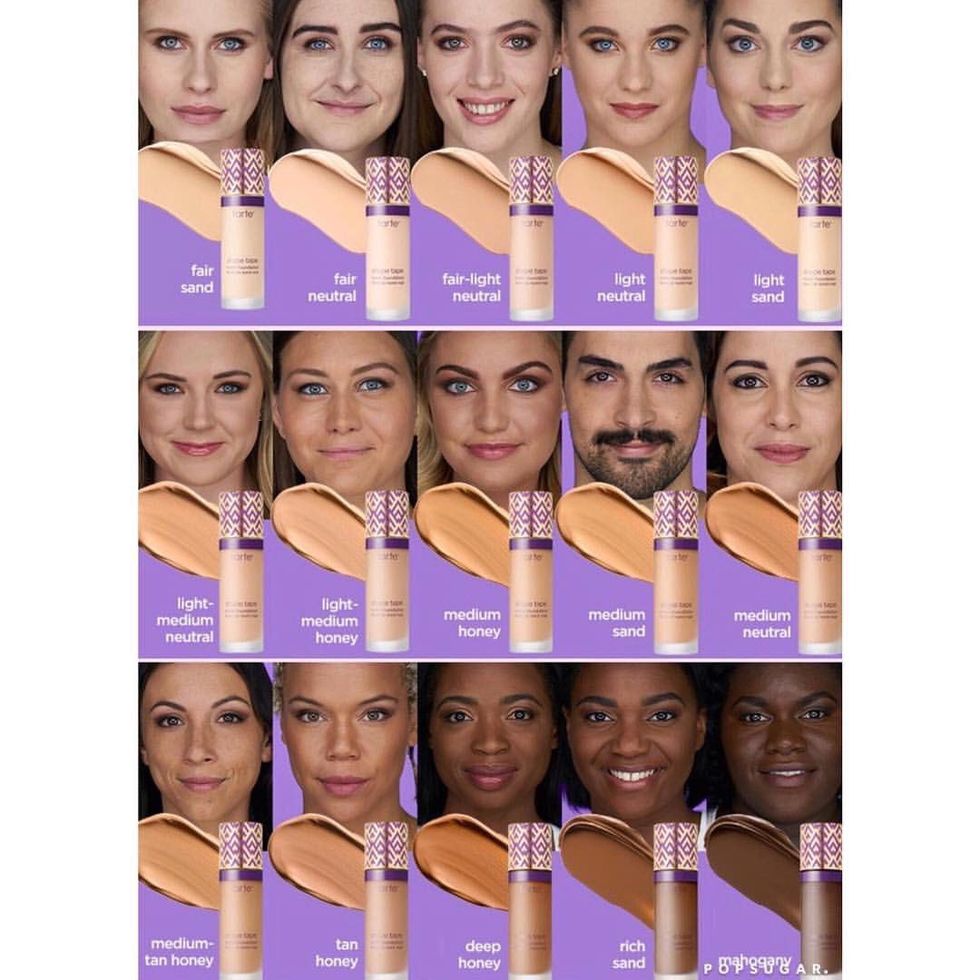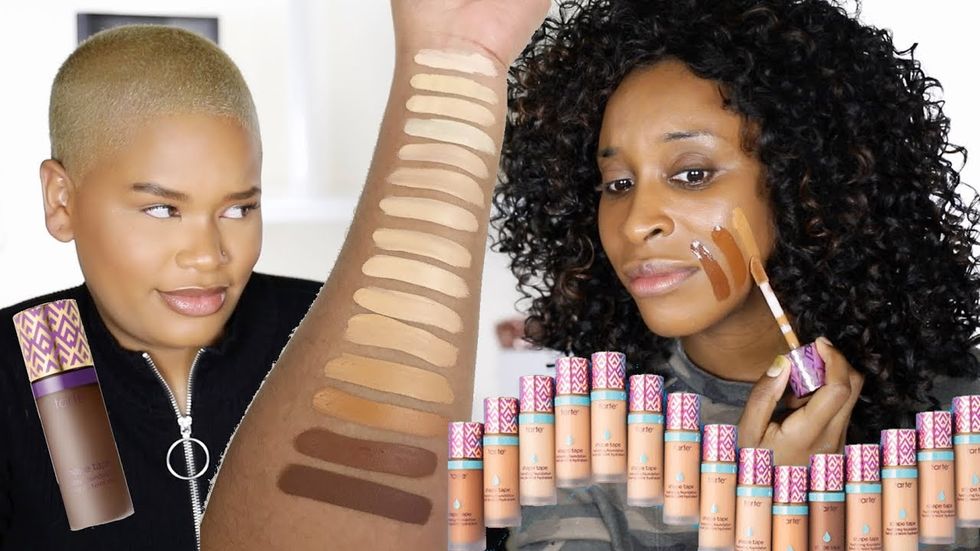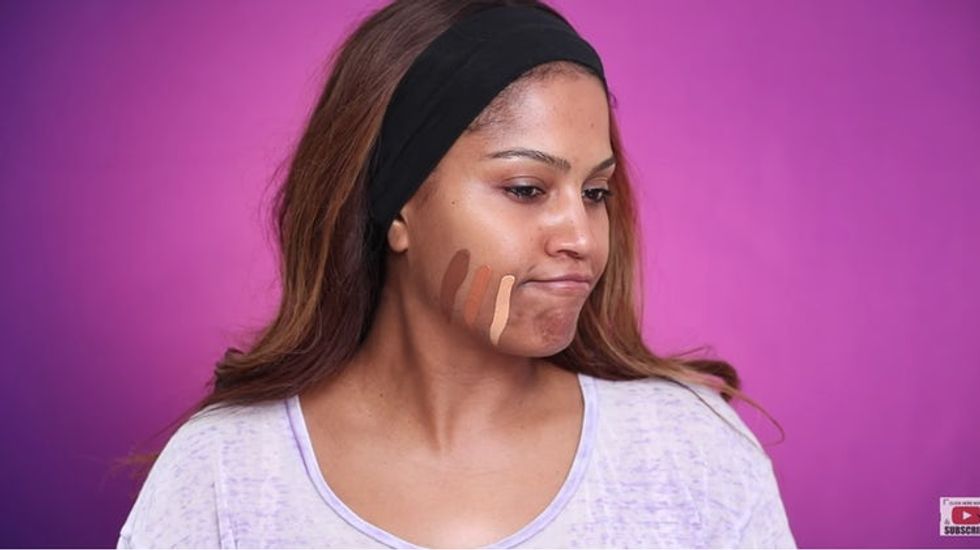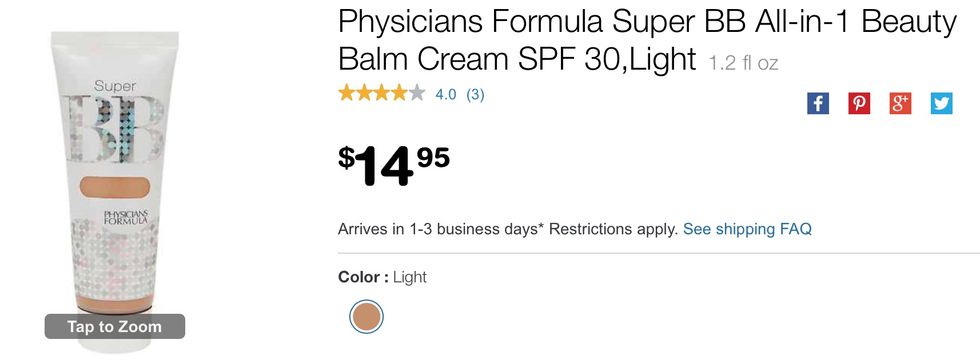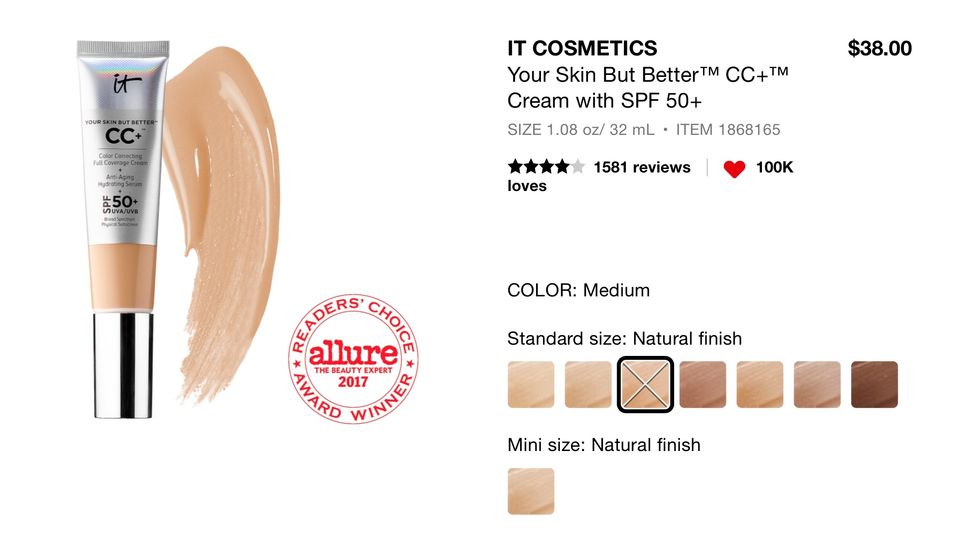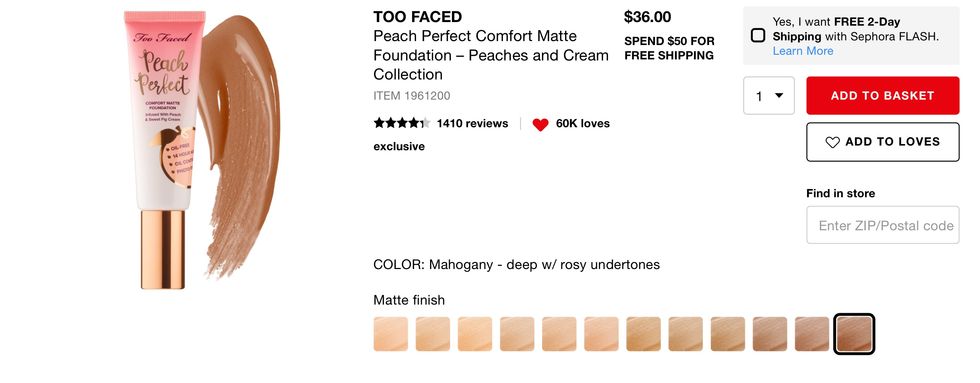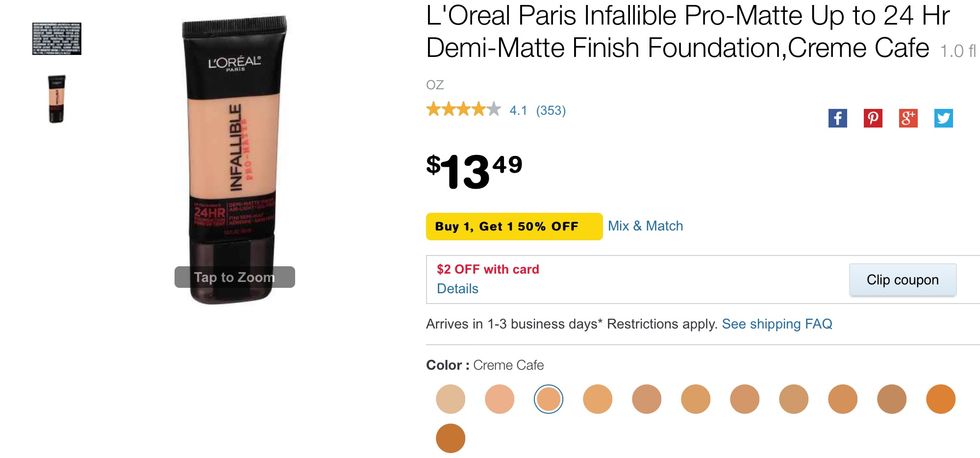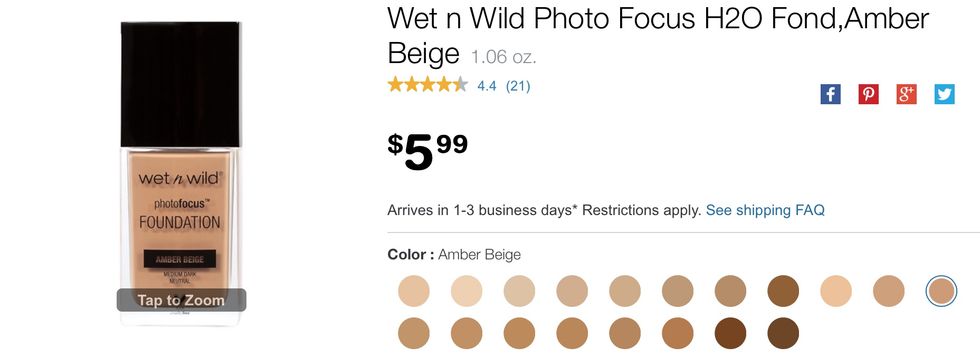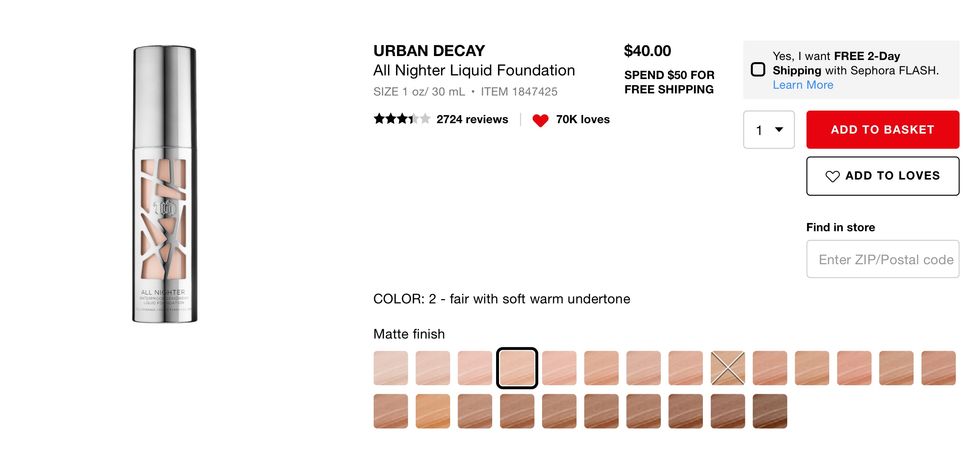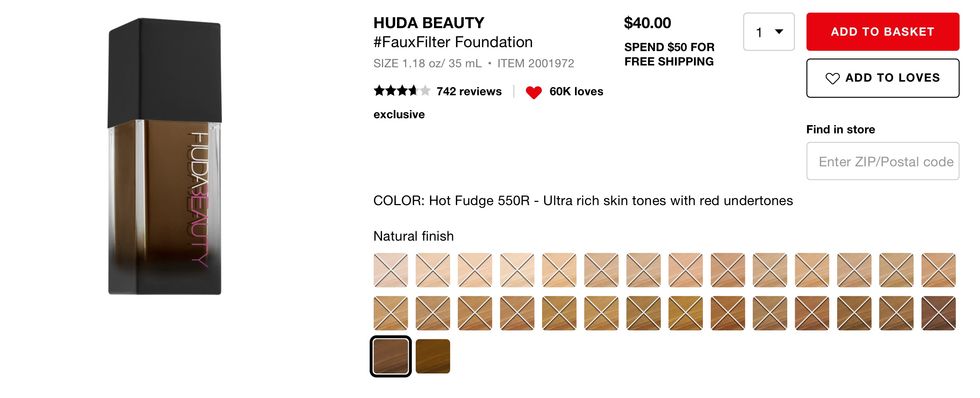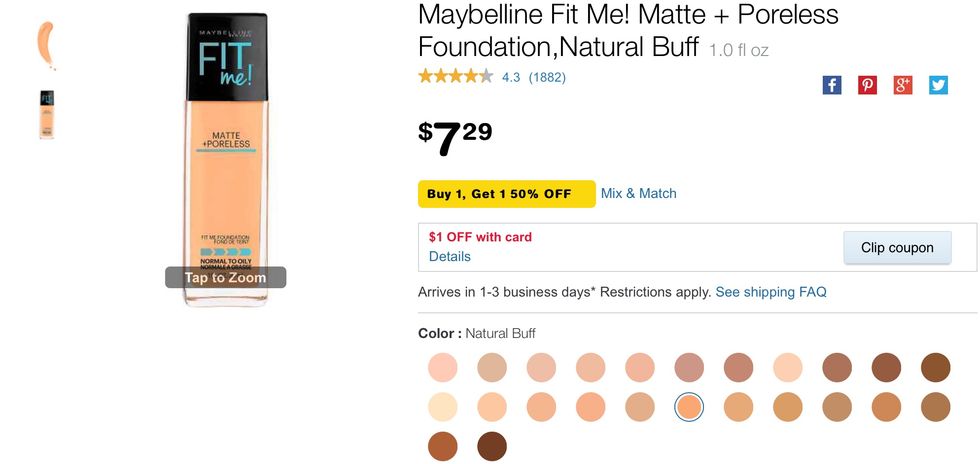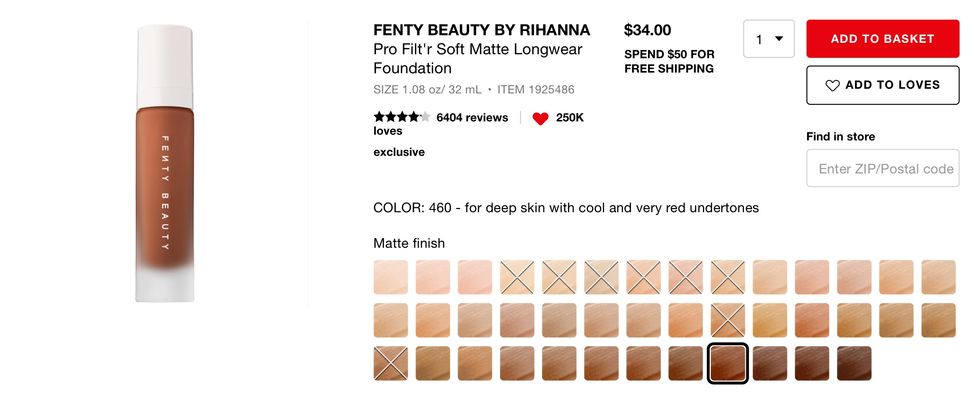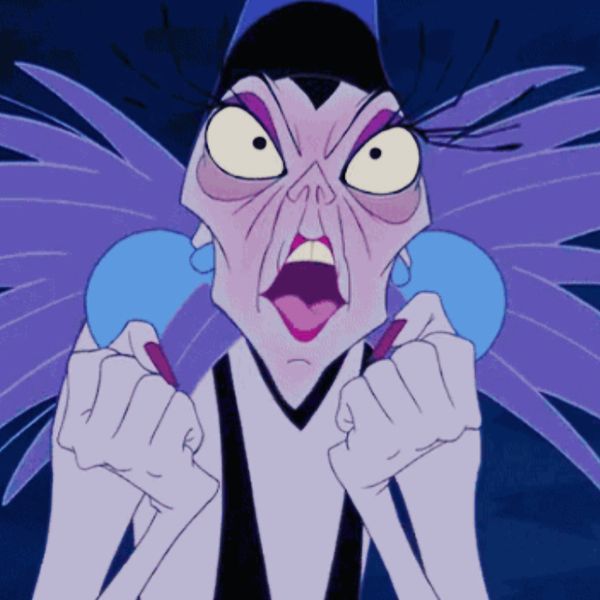The year is 2018. Consumers spend a combined $8 billion annually on cosmetics (including haircare, makeup, skin care) in the United States. More and more makeup and cosmetics companies are popping up, more and more products are being released, more and more YouTube and Instagram influencers are posting tutorials, reviews, and ‘favorites’ videos every day....
Yet there are still several problems within this multibillion dollar industry that remain unsolved and unacknowledged. The issue that affects the most people is lack of representation for people of color in shade ranges for complexion products (and in eyeshadow/blush pigmentation that won’t show up on people whose skin tone isn’t fair or light).
One of the most highly anticipated makeup launches of the past year has also failed to cater to consumers of deeper complexion. On January 1, 2018, Tarte Cosmetics announced their newest foundation: the Shape Tape Foundation. Shape Tape is also the name of Tarte’s best selling product, Shape Tape Concealer. Anyone who stays slightly up-to-date with makeup news and the best products in cosmetics has heard of Shape Tape, the concealer that has been praised by almost every beauty guru on the planet for its full coverage formula and large doe-foot applicator.
When Tarte announced their new foundation, the online makeup community went nuts. The fan favorite concealer was becoming available as a foundation, and that was something that excited just about everyone (everyone who cares about makeup, that is).
Then, Tarte shared the swatches of their foundation, showcasing all 15 shades it would be available in.
Notice that there are about eight shades for fair/light skin tones, four to five for medium skin tones, and two to three for deep skin tones. The shade range caters considerably more to lighter skin tones—and even medium ones—but almost completely ignores the rest of the melanin spectrum. Even the people whose skin is as deep as their available deeper shades might not be able to use those shades because their skin has a different undertone (pink undertones, orange undertones, and yellow undertones can’t all wear one deep shade in foundation—it doesn’t actually match all of them). The fair shades account for different undertones and slight variations in depth, but then the deep and medium shades do not do the same (for example, the difference between fair neutral and light neutral is much more subtle than the difference between deep honey and mahogany).
The Shape Tape Foundation launch, originally intended for January 21st, has been pushed back due to customer outrage. The general response to the foundation has been that, even if the formula is great, the shade range is unexcusable and should not be supported by consumers. Tarte is coming out with 10 additional shades for the foundation, they’ve said, however, it doesn’t make sense why they wouldn’t just release 25 shades at the initial launch, even if it was a few weeks later, if they didn’t have all of their shades ready.
I don’t know if the general public’s outrage is what encouraged the brand to recognize their fault, or if it was big name beauty gurus like NikkiTutorials, Jackie Aina, Alissa Ashley, Makeup Shayla, Laura Lee, James Charles, and RawBeautyKristi calling out the complete and utter lack of acknowledgement for people of color in their shade range that really stirred the pot—but regardless, Tarte heard the cries of the people (thankfully). Too little too late, but still, they at least acknowledged their error.
Tarte came out with an apology on their Instagram story.
“We want to let you know that we hear you... You all know by now that we revealed our much anticipated Shape Tape Foundation and the final shade range that we launched was definitely not a representation of all of you. It may be a little too late, but we can assure you that this was not meant in any kind of malicious way.
“We all just got so caught up in #shapetapenation and seeing your Tweets asking for it... We wanted to get the product out as fast as possible, and we made the decision to move forward before all the shades were ready to go. We know there is no excuse, and we take full responsibility for launching this way.
“We lost sight of what’s really important in this industry, and for those who feel alienated in our community, we want to personally apologize. We’re doing everything in our power to bring those unfinished shades to market as fast as we can, at any cost. We CAN and WILL DO BETTER.”
The thing is, though, Tarte knew—knows—how many people wanted this foundation to be amazing. People of all backgrounds, of all skin tones, of all budgets, wanted this foundation to be amazing, and were willing to drop $39 on the bottle of Shape Tape in their own shade... but then Tarte went and ruined that by releasing a mere 15 shades.
A mere 15 shades that didn’t even cover a full spectrum of skin tones.
Though I’m not saying that we can’t blame Tarte for being in the wrong, we have to also remember that they’re not the first big name brand to ignore people of color in their highly anticipated foundation launches. Let’s just take a moment to look at some other foundation ranges that don’t really cater to all skin tones.
But then, we can look at some other foundation ranges that do.
And finally, let’s look at a foundation range that came out within the past year, with just as much hype surrounding the launch, that had, INITIALLY, 40 shades available. Is this the only brand to ever come out with 40 shades in a foundation? No. But this was Fenty Beauty’s first launch—ever—and Rihanna came out with 40 shades in a complexion product.
And, not even six months later, Tarte decided to drop a foundation with 10 pale as f*** shades and 5 kinda deep ones.
Do people just assume that people of color don’t want foundation that matches them? Or do they assume that POC don’t buy from their company? Do they not want POC to buy from their company?
I would, as a brand, want as many people as possible to be buying my product, because that would mean I make more money—right?
People should not have to create brands just for people of color because no one else caters to them (e.g. Black Radiance, Iman, etc.). These brands can exist, sure, but the fact that they have to exist is scary, and, if you ask me, wrong.
Excluding people of color, in any way, needs to end. Period. Excluding anyone needs to end. Period.


